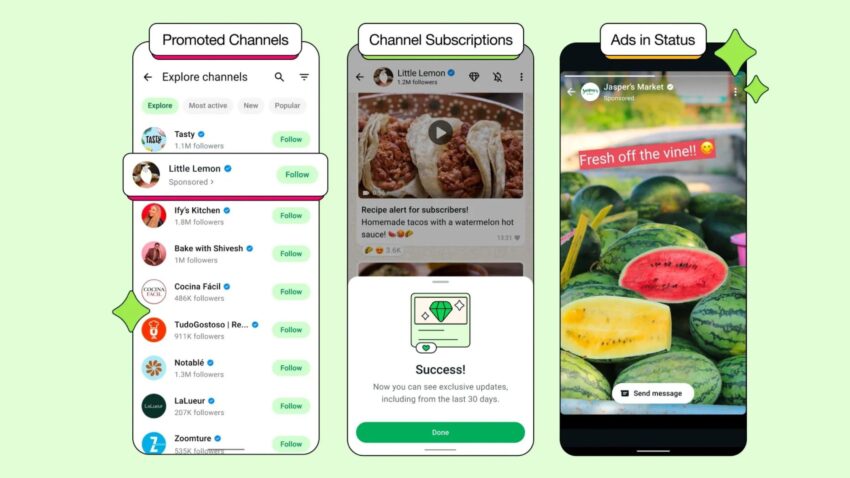If you’re tired of censorship and dystopian threats against civil liberties, subscribe to Reclaim The Net.
WhatsApp, the once ad-free messaging platform used by billions, is preparing to introduce advertisements into the app, marking a significant shift in how Meta plans to monetize the service.
The upcoming changes will primarily affect the “Updates” tab, where ads will show up as full-screen placements within “Status” posts, ephemeral content similar to Instagram Stories, and through promoted channels in the app’s discovery directory.
Ad targeting will rely on user data such as geographic location, language settings, interactions with other ads, and channel subscriptions. For those who have linked their WhatsApp account to Meta’s Account Center, additional preferences will influence which ads are shown.
Despite Meta’s assurance that personal messages and calls remain end-to-end encrypted, the company is forging ahead with behavioral advertising across WhatsApp’s growing media features.
Meta describes the move as delivering “ads built with privacy in mind,” but the introduction of profile-based advertising raises serious questions about user consent and data autonomy.
Meta insists it avoids using sensitive identifiers like phone numbers or chat content. Still, the very act of tracking engagement to serve personalized ads reveals the deep integration of surveillance technologies into everyday communications.
The company also plans to enable subscription-based features within Channels, allowing select creators and businesses to charge for exclusive content. App store systems will handle these payments. With over 1.5 billion users engaging daily with Status and Channels, the new revenue strategy could yield significant returns.
Previously, WhatsApp had largely relied on its Business platform and click-to-message advertising to generate income. But according to Alice Newton-Rex, WhatsApp’s VP of product, the app is now ready to evolve. “The new ads and promotion products felt like the next natural evolution,” she said, pointing to business demand for direct discovery and engagement through WhatsApp.
Yet beneath this expansion lies a troubling trajectory. When Meta acquired WhatsApp in 2014, concerns emerged about data consolidation and monopolistic influence.
Although the EU Commission approved the acquisition, the introduction of the Digital Markets Act (DMA) now places new legal constraints on such practices. Article 5(2) of the DMA, along with the GDPR, mandates that any data linking across services must be based on freely given user consent.
Meta, however, continues to sidestep this principle by deploying its “Pay or Okay” model, which requires users to pay monthly fees if they decline to share personal data for advertising.
While this model has already been ruled illegal by the European Commission, Meta persists, offering minor cosmetic changes without altering the core issue: consent under financial duress is not freely given.
The looming question is whether Meta will extend this model to WhatsApp, effectively monetizing user resistance to surveillance.
With a potential monthly charge similar to the €9.99 fee imposed on Instagram and Facebook users, WhatsApp could follow the same path, despite previously costing just $1 per year before Meta’s acquisition.
The contrast is stark. Signal, a privacy-first messaging app, sustains its global operation with a modest $50 million annual budget. Meta, by contrast, appears determined to extract maximum value from user data, even at the expense of privacy rights and regulatory compliance.
As WhatsApp transitions into yet another arm of Meta’s ad empire, the cost of staying private may continue to rise.
If you’re tired of censorship and dystopian threats against civil liberties, subscribe to Reclaim The Net.
The post WhatsApp Shifts to Ad-Driven Model, Testing Limits of Privacy and Consent Under Meta appeared first on Reclaim The Net.
Click this link for the original source of this article.
Author: Rick Findlay
This content is courtesy of, and owned and copyrighted by, https://reclaimthenet.org and its author. This content is made available by use of the public RSS feed offered by the host site and is used for educational purposes only. If you are the author or represent the host site and would like this content removed now and in the future, please contact USSANews.com using the email address in the Contact page found in the website menu.





